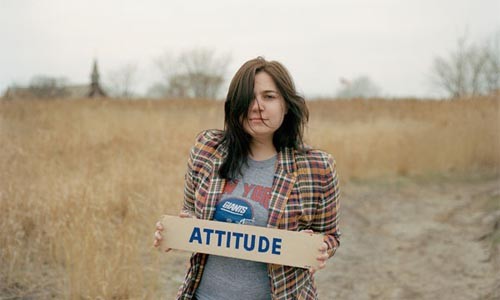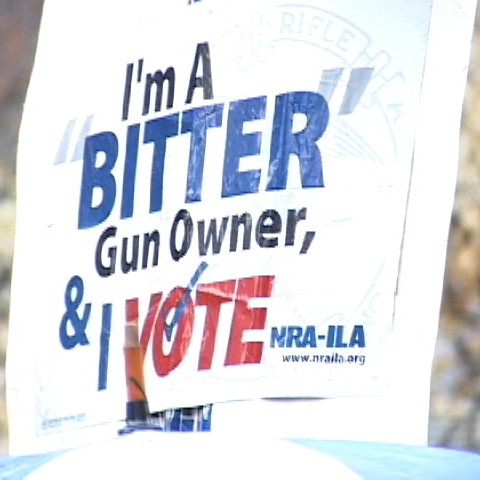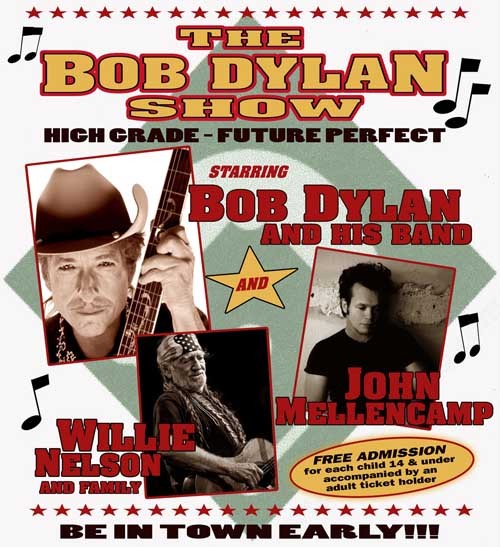Thursday, April 30, 2009
Under the big top in Schenley Plaza tonight, you can check out Jennifer O'Connor, the Brooklynite singer-songwriter, along with ubiquitous locals Donora. It's a release show for YEP's newest Live & Direct comp, an anthology of recordings from live performances from the past year. The show is open to everyone in case you're a freeloader; you have to be (or become) a member in order to recieve the comp. Music starts at 7, rain or shine (and we've had a bit of each of those so far today).
CP Music Czar Aaron Jentzen talked up O'Connor in time for her show here a couple years ago -- check that story out here.
When CP's Andy Mulkerin wrote about space-rock pioneer Sonic Boom's 2007 Pittsburgh performance with his group Spectrum, he noted, "Given that the chance of a Spacemen 3 reunion anytime soon is slim, it's an enticing opportunity to see one of the founding fathers of the second generation of space rock."
While no reunion, tonight's Spectrum performance does promise to include an airing of classic Spacemen 3 material. And while Spectrum's hypnotic 2007 performance, at Garfield Artworks, was paired with sweltering heat, tonight's full-band show at the Warhol will almost certainly prove a bit more temperate. Not that there's anything wrong with watching the sweat run down your arms as you zone out to Spectrum, but it's not for everyone.
Read Andy Mulkerin's story about Spectrum here.
Spectrum (featuring Sonic Boom) with special guest Cheval Sombre performs tonight, 8 p.m. Thu., April 30. Admission is $12. The Andy Warhol Museum is located at 117 Sandusky St., North Side. Call 412-237-8300 or visit the museum's Web site for more details.
Tags: FFW>>
Wednesday, April 29, 2009
How did our latest courtroom effort to shed light on the Scaife divorce case go? Put it this way: The first decision Judge Alan Hertzberg had to make was whether to close the hearing on our petition to open some of the records.
Hertzberg has had the uneviable task of presiding over the contentious divorce dispute, in which teams of attorneys for Tribune-Review publisher Richard Scaife and his wife have been battling for three years now.
But today's proceeding had a hopeful beginning: Despite a request by the Scaife attorneys to clear the courtroom, Hertzberg decided to keep the hearing open. That's why you're reading this now, and why you may be reading accounts of the hearing in tomorrow's Tribune-Review and Post-Gazette. Both papers had reporters on hand.
(UPDATE: The Post-Gazette's coverage is here.)
The truth is that what we were asking for seems pretty modest. At least to me.
First, we're asking the court to release the decree sealing the case, so that we, and the public, can understand why even courtroom testimony in this case is under wraps.
Pennsylvania's Constitution requires that "All courts shall be open," and while there are exceptions, youd expect the public to get an explanation about why an exception is being made. Not here, though: The order sealing the case has been sealed right along with it. As I noted when this issue first came to light, "we don't know what's going on inside the courtroom -- and we don't even know why we can't find out."
Second, in order to keep abreast of future developments in the case, we want the docket to be opened up as well. A docket is just an index of the actions taken in a case -- a timeline that shows, for example, that on such-and-such day, the defendant filed a motion to have the case dismissed.
At least, that's what I've always thought a docket was. But attorneys for the Scaifes seemed concerned that we might be asking for something more, like carte blanche to look at all the underlying documents themselves. Hertzberg seemed puzzled by their concern, and in fact said our request "was not that complicated."
But it was, apparently. In addition to the dispute over what a docket is, the Scaife attorneys also raised procedural objections, claiming (for example) that we only gave them 7 days to respond to our petition, rather than the 10 they said they were entitled to. There was also some speculation about what we were really up to.
Particularly vociferous in objecting was Wililam Pietragallo, the attorney for Margaret Scaife. Peitragallo called our petition "the first game of a charade, and I don't want to play." Yale Gutnick, the attorney for Scaife himself, worried that anything given to our attorneys would "end up in the newspaper" shortly afterward.
By the end of the hearing, Hertzberg decided to hold another hearing -- originally scheduled for this Friday but now delayed, perhaps for weeks. At the same time, attorneys for the Scaifes are apparently going to take another look at the records we requested, to see if they can pinpoint any sensitive information like "a matter of life and death or national security" -- as our ACLU attorney, Vic Walczak, put it.
So this may work itself out in the end. But ironically enough, before the Scaife attorneys could look at the docket, Hertzberg had to sign a court order giving them permission to do so. Even the attorneys who have been arguing the case, it seems, aren't allowed to take a look.
Tags: Slag Heap
Over the years I've spoken with many people about the "state of the arts," especially arts groups' prospects for attracting new audiences. But at a meeting yesterday hosted by the Greater Pittsburgh Arts Council, the author of a new think-tank report put things in stark and perhaps unintentionally ironic terms.
RAND Corp. researcher Laura Zakaras asked: "How can we attract more Americans to their own culture?"
Technically, of course, our culture is simply however we live; we don't need to be attracted to it because we're already in it. But at meetings like this, words like "art" and "culture" have an implicit meaning: Fine arts and traditional performance, usually from the Western canon, and usually as found in nonprofit settings from museums to concert halls.
What's implicitly excluded is the sort of cultural product most contemporary Westerners are utterly immersed in: Pop songs; YouTube; Hollywood movies; Facebook; reality TV; best-selling novels; and commercial expression of all kinds.
For arts groups, the troubles are plain, and not really new. Speaking at the Benedum Center, Zakaras summarized her report ("Cultivating Demand for the Arts") for about 100 arts professionals: For a quarter-century, we've seen rapid growth in the number of arts organizations -- but their average revenue is down and so is demand, especially among the young, the nonwhite and the underprivileged.
Some consider the stakes high. To Zakaras, it's about whether we'll commit to democratizing access to the arts, or just continue the slide into elitism. GPAC panelist Sarah Tambucci, executive director of Pittsburgh's Arts Education Collaborative, said that without the common, enlightening language of the arts, "Our very culture ... our very democracy might be at stake."
The solution, Zakaras says, lies in the fact that people patronize the arts because it's a rewarding experience. So we should focus not on maximizing the sheer number of offerings, but rather in boosting the quality of the experiences people have with art, as well as the number of people who can have them.
Because access to arts education -- especially among kids -- is the single best predictor of future interest, Zakaras emphasized the poor state of said education in the U.S. Suggesting reforms, she cited Rhode Island and New Jersey as states where government arts agencies have successfully worked with schools.
That's great. (The report is downloadable at www.rand.org/pubs.) No one wants symphonies or art museums to disappear. But it all left me thinking about more fundamental dilemmas.
Our consumer society creates enough wealth to support arts institutions large and small, but not enough people who want to consume what they offer. (Most arts groups are heavily subsidized from both public and private coffers.)
Again, though, we do have a plenty of art that's thriving -- popular art. So what the meeting's attendees and panelists spoke so passionately about, in essence, was the struggle to preserve and transmit a canonical culture in a consumer society that demands novelty, simplicity and speed.
Is the insistence on a canon a way of valiantly holding back the tide of pop-cultural barbarism -- or just a means, after all, of defending elitist presumptions?
I'm not arguing against government subsidies for the arts. But what if the specific, mostly centuries-old art forms we're mostly subsidizing -- the ones we've codified as "the arts" -- no longer resonate with people? What if they no longer serve the very purposes of art, to facilitate expression and foster understanding?
Others at the meeting seemed to be thinking this way, too. "There's a demand for the arts, it's just not in the form we might all like it to be," said panelist Janera Solomon, executive director of the Kelly-Strayhorn Theater. Solomon. Solomon grew up playing steel-pan music under her father's tutelage, and recalled struggling to convince the musical authorities at Oakland Catholic that the steel pan was a "legitimate" instrument. As a curator of theater, music and dance, she said, she prefers "things that feel like they're from this time period."
I found most interesting, however, comments by Amos Levy. The 2007 Carnegie Mellon grad now works with CMU's Center for the Arts in Society, whose community-outreach endeavors include a hip-hop project and a neighborhood-news publication, both for city kids. Addressing the meeting, Levy said that the Center's had success reaching kids where they are culturally, especially through hip-hop music and film.
Hip hop, of course, is a genuinely up-from-the-streets culture encompassing distinctive music, dance and visual art. Much (if not all) of it is commercially oriented, which is one reason nobody's nearly as worried about hip-hop as they are about chamber orchestras.
I talked to Levy after the meeting.
While reading the RAND report, he'd written in a notebook: "Do we need to learn to appreciate and support and create the arts that people in communities create on their own, and not just share with them the arts that we appreciate, support and create?"
"We should go and ask the teens and other people what are the arts things they participate in now," he said.
Levy observes that older art forms are simply less exciting to kids, and seem irrelevant to their lives. Compare opera and rap. The latter's rapid free-associations and verbal jump-cuts reflect the hyperlinked world we live in. Youths "enjoy that form because it speak to that experience."
Yet that needn't mean the death of opera, or of Elizabethan poetry, any more than street art invalidates the Old Masters. Kids drawn to art want to know more about it, said Levy. "Expanding on wherever you start, you'll reach all of those things, you'll reach that history."
Tags: Program Notes
I'll try to put up some video of this later today (UPDATE: It's here) but last night's mayoral forum, held at the Kingsley Center and focused on violence prevention and gun rights, featured a couple candidates shooting themselves in the foot.
The most gaping wound was inflicted during a discussion of domestic abuse. Mayor Luke Ravenstahl said that one of the proudest accomplishments was establishing more stringent policies for handling domestic abuse by city police officers. True enough. But as challenger Patrick Dowd pointed out shortly afterward, Ravenstahl only ushered in that policy after promoting three officers with domestic-abuse allegations in their past.
Given that one of the co-sponsors of last night's forum was the Women and Girl's Foundation, Ravenstahl picked a tough crowd to try this out on.Dowd also scored some points off Ravenstahl's claim that having police detain kids in a curfew center would, in fact, be a way to help them relate to youth.
There were other key areas of dispute as well. The gun-control debate continued to play out, with Ravenstahl and Dowd more or less echoing each other's support for a city law intended to stop the "straw purchase" of such weapons. Carmen Robinson continued to denounce local legislation as a "distraction" from the real issues ... and to explain that she was not, in fact, a "card-carrying member" of the NRA.
Robinson also took issue with the fact that David Kennedy, a consultant the city hired to help devise a crime-reduction strategy, is white. That, she said, would make it difficult for Kennedy to devise an effective strategy in black communities (though Kennedy was brought in as part of an initiative launched by city councilor Ricky Burgess). And I could be wrong about this -- I was working the camera and stuff -- but I think she also said that Kennedy's resume wasn't any more accomplished than that of Tim Stevens, who has long headed the local NAACP chapter.
I dunno. No disrespect to Tim Stevens, but among other accomplishments, Kennedy has literally written the book -- or at least a well-regarded text -- on criminal deterrence. Robinson also took a cheap shot at her rivals by suggesting that they'd only really gotten concerned with gun violence after the Stanton Heights police shooting. It just ain't so: Debate about the city's straw-purchase bill, among other changes, dates back well before that tragedy.
Like many others, I've been impressed by Robinson's performance in the past several weeks. She's got a command of the issues and she delivers her message with polish. She did a good job, for example, faulting Ravenstahl for saying that overall, crime rates are down -- even though homicide rates are up. (Ravenstahl's numbers aren't wrong ... but against a backdrop of spiking murder rates, they do remind one of an old joke: "Other than that, Mrs. Lincoln, how did you enjoy the play?") But like the mayor, Robinson didn't have a great night otherwise. If you are scoring the debates at home, you'd have to put this one in Dowd's column.
Last night's debate was also notable for the inclusion of Dok Harris, who is running as an independent but got equal time with the candidates on the ballot this May. Harris was a thoughtful voice, but there's a business-school syntax to his delivery that made it sometimes hard for me to figure out what the hell he was saying. Again, though -- I was working the camera. Maybe when I post some footage online, I'll have more luck.
Tags: Slag Heap
Tuesday, April 28, 2009
Sue Kerr broke the good news already, but I thought it might be worth seeing on the county exec's own letterhead: Dan Onorato supports anti-discrimination protection for the couty's LGBT residents. The operative part of his statement reads as follows:
I am strongly supportive of passing inclusive non-discrimination legislation here in Allegheny County, as well as at the state level. I encourage our elected officials to do so without delay. All citizens, including members of the LGBT community, need to know that they are fully protected in employment, housing and public accommodations everywhere in the Commonwealth in order to make Allegheny County and Pennsylvania stronger and more economically competitive.
Good for you, Dan. Wish you hadn't kept us guessing quite so long, but we'll take it for the victory it is.
***
Speaking of keeping people guessing, the world's all abuzz with news that Arlen Specter is switching parties. The question here too is ... what kept you so long? Only this time, I think the answer is more crucial.
I think everyone gets the motivation here: Specter knows he can't win in a Repubican Primary, because so many moderate Republicans have left the party, ceding it to right-wingers more inclined to vote for rivals like Pat Toomey and Peg Luksik. In fact, speculation about Specter switching parties has been going on for awhile.
Specter would, I think, have been better off taking that advice at the time. By waiting as long as he has, it makes his opportunism seem even more obvious.
What's more, Specter's vote against the Employee Free Choice Act was sort of the last straw for me. Not only do I think it was a terrible vote, and a betrayal of many of the working people and unions who have backed him, but ... I'm just sick of the drama with this guy. I'm sick of how we have to watch the noble Arlen Specter wrestle with his conscience in public, and tell us what a hell of a thoughtful and deliberative guy he is. And of course at the end of the day -- the right thing to do always lines up perfectly with whatever is most politically expedient at the time.
Even his decision to switch parties is an example. "I'm putting principle at the top of the list," he says. Yeah, sure. I guess it's just coincidence that you discovered this "principle" only after polls showed you didn't have a prayer of beating Toomey.
There's lots of talk about how Specter's switch brings the Dems to within a vote of being able to thwart GOP filibusters. But that assumes Specter, Mr. Independence, will actually vote in concert with other Democrats. I'll believe that when I see it.
Don't get me wrong: I'd vote for Specter over Toomey in a heartbeat. But I hope there's a solid, progressive alterative to Specter in the primary. Specter would probably win anyway. But look how a challenger from the right has gotten Specter to dance. Imagine what he'll do when confornted with a challenger on the left.
***
Finally, a bit of a heads-up. Tomorrow afternoon, City Paper and its attorneys at the ACLU go before Judge Alan Hertzberg in an effort to make public some of the goings-on in the Scaife divorce case. As we've previously reported, courtroom proceedings in the case have been sealed, along with even basic information usually found in the docket.
We'll let you know what happens ... maybe. I mean, on the advice of our attorney, I couldn't even tell you about anything the Scaifes' attorneys may have filed in response to our requests. Because that stuff, too, could arguably be under seal.
And so it goes.
Tags: Slag Heap
Monday, April 27, 2009
Over the weekend a shooting took place in Florida which, as some commentators have already noted, bears a distinct resemblance to the Stanton Heights tragedy.
Joshua Cartwright gunned down two deputies before being killed in a shootout with other police. Cartwright, like Richard Poplawski, had been previously accused of domestic abuse. And according to a police report, Cartwright, again like Poplawski, apparently subscribed to conspiracy theories about the government. Cartwright's wife said "her husband believed that the government was conspiring against him. She said he had been severely disturbed that Barack Obama had been elected President."
Guns don't kill people: A delusional right-wing world view does.
I know, I know: Not that simple. Even if today we also learn, courtesy our friends at the Post-Gazette, that gun sales continue to boom -- thanks in large part to customers who share the fear that Obama is coming to get their guns.
Of course, if a lefty went out on a killing spree, it would be unfair to try to blame Keith Olberman. Though I'm sure Fox News would try. Nor do I see this leading to renewed calls for gun control: Cartwright apparently wasn't using an assault rifle ... which you can almost imagine gun-rights absolutists using as a defense.
But you know, somebody is making a lot of money by fomenting all this fear of Obama. Fox gets ratings. The NRA gets new members. Gun dealers and manufacturers, meanwhile, are maybe the only industry in America that is achieving record sales in the midst of a recession. It's the rest of us -- including, lately, our police -- who seem to be paying the price.
Welcome back to MP3 Monday. This week's installment features a guy whose tracks are all incredibly long, so you really get your money's worth with one MP3 from him. That guy is Mike Tamburo, experimental hammer dulcimer king of Pittsburgh. I wrote a bit about him for his Fantastic Voyagers festival last November, and before that when his old band, Arco Flute Foundation, had a little reunion.
The track this week is part two of The Ballad of One Hung Glove.
Enjoy!
Friday, April 24, 2009
Via The Daily Swarm and Crickets comes this entertaining read about hometown hero Girl Talk on Billboard.com -- Girl Talk Experimenting With Actual Songs for Next Album. Yes, I know the interview just suggests a slight change in the nature of his craft, but it's funny that we're characterizing a musician's hope to "write actual songs" as a seismic shift.
Tags: FFW>>
Just days before the April 28 release of his new studio album, Together Through Life, Bob Dylan has announced a local stop on his upcoming tour. On July 13, Dylan will play the CONSOL Energy Park, home of the minor-league Washington Wild Things, along with fellow icons John Mellencamp and Willie Nelson.
Though we've heard mixed things -- OK, mixed bad things -- about Dylan's performance here last year at the New American Music Union festival, his previous performance at the Wild Things' park a couple of years back was an immensely enjoyable evening. Bob and ballpark hotdogs under the stars are a tough summertime combination to beat.
Tickets go on sale Sat., May 2 at 10 a.m. Seats are a tidy $67.50 for adults, but free for children 14 and under with an adult ticket holder, and available through Ticketmaster or by calling 724-250-9555.













